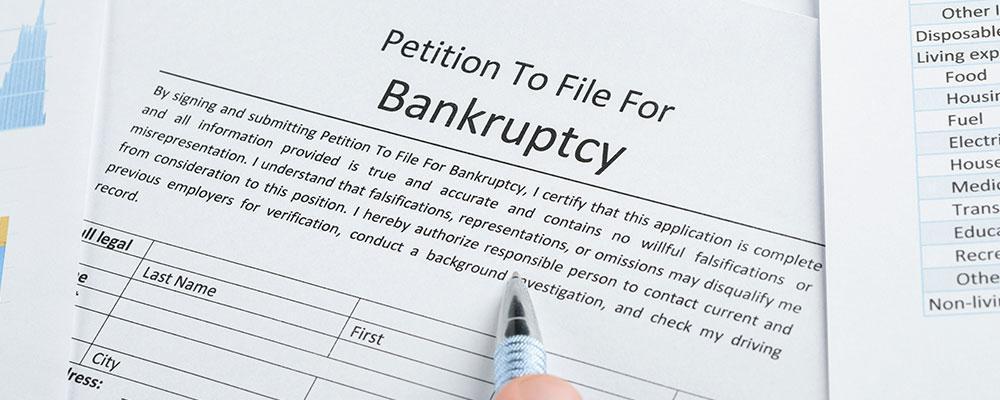Hudson Valley, New York Bankruptcy Lawyer

Can I Still File for Bankruptcy?
When you are drowning under the crushing weight of overwhelming debt, the stress and fear can be overwhelming. Although many people seek bankruptcy relief, they continue to be overwhelmed by debt because they hold the mistaken belief that bankruptcy reforms have locked the doors of the bankruptcy court for most consumers. To the contrary, the vast majority of those who could file bankruptcy prior to bankruptcy reforms that imposed certain requirements, includes a means test for filing Chapter 7, still qualify for bankruptcy relief.
The Bankruptcy Abuse Prevention and Reform Act of 2005 (hereinafter “Bankruptcy Reform Act”), which was enacted because of intense lobbying by credit card providers, is commonly misunderstood as imposing onerous requirements to qualify for a Chapter 7 (“Liquidation Bankruptcy”).
This misconception has led many consumers drowning in credit card debt, ruinous hospital bills and other forms of unsecured debt to hobble along while dodging collection companies and dreading wage garnishments. Nyack, New York bankruptcy attorney Robert S. Lewis recognizes that this is no way to live, so he is committed to setting the record straight while helping debtors reclaim their financial lives.
Do I Still Qualify for Bankruptcy?
The primary objective of the Bankruptcy Reform Act was to force debtors with a significant amount of disposable income to repay some or all of their unsecured debts. Although a “means test” is one of the requirements imposed by these reforms, it is a very different type of means test than those that apply to eligibility for “need based” financial assistance in many state and federal programs. The other requirements imposed by the law simply require debtors to jump through more hoops, but they generally will not bar anyone from pursuing Chapter 7 bankruptcy relief.
Means Testing: While the means test essentially has two components, it is important to understand that the name of the test is a bit of a misnomer. Plenty of people with six figure incomes can qualify under this means test because a debtor’s monthly payments toward secured debt and non-dischargeable debts, like child support and alimony are as critical to the calculation as the debtor’s income.
The means test is essentially a two-prong test. The first step to determine if a debtor qualifies for Chapter 7 is to compare the debtor’s household income to the median family income for the state based on family size. If your income falls below this threshold, you qualify for Chapter 7 under the means test without further analysis. While these amounts are adjusted based on inflation and other factors, and they are updated yearly, the median income for a family of four in New York for purposes of the Chapter 7 means test for cases filed after May 1, 2020 is $105,636. In other words, a family with household income below this level qualifies under the means test.
If a family’s household income is above this threshold, Chapter 7 might still be an option, but further analysis is necessary. The average monthly income of the debtor must be considered less secured debts (i.e. mortgage payments) and non-dischargeable unsecured debts like family court obligations, court imposed fines, etc. This analysis also requires deducting certain allowances for living expenses, but these will typically be based on government established amounts rather than your actual expenditures. After these calculations, you may still qualify for Chapter 7 if you do not have enough “disposable income” to make a significant contribution to your dischargeable debts.
Education/Counseling Requirements: Whether you are filing for Chapter 7 or Chapter 13, you will be required to complete an approved credit counseling program, which can be completed online or over the telephone. Once your bankruptcy has been filed, Chapter 7 filers must take a course on budgeting and debt management. This requirement also can be completed online or via telephone. Our law firm can help you select a reputable company to complete these requirements.
Even if you do not qualify for Chapter 7, this does not mean that you do not qualify for bankruptcy relief. Chapter 13 provides protection from most debt enforcement procedures while allowing you to pay your unsecured debts and arrearages on secured and non-dischargeable debts over a three or five-year term.
Because of aspects of the Bankruptcy Reform Act that impacted attorneys, many law firms have stopped handling consumer bankruptcies. This mass exodus means that it can be difficult to find a time-tested, highly-experienced New York bankruptcy attorney. Rockland County bankruptcy attorney Robert S. Lewis has represented hundreds upon hundreds of financially struggling families in bankruptcy during his 35 years practicing law. Our Nyack, NY based law offices represent clients throughout Rockland County. We invite you to contact us at 845-358-7100, so we can help you protect your home, business, assets and financial future. Se habla Español.


